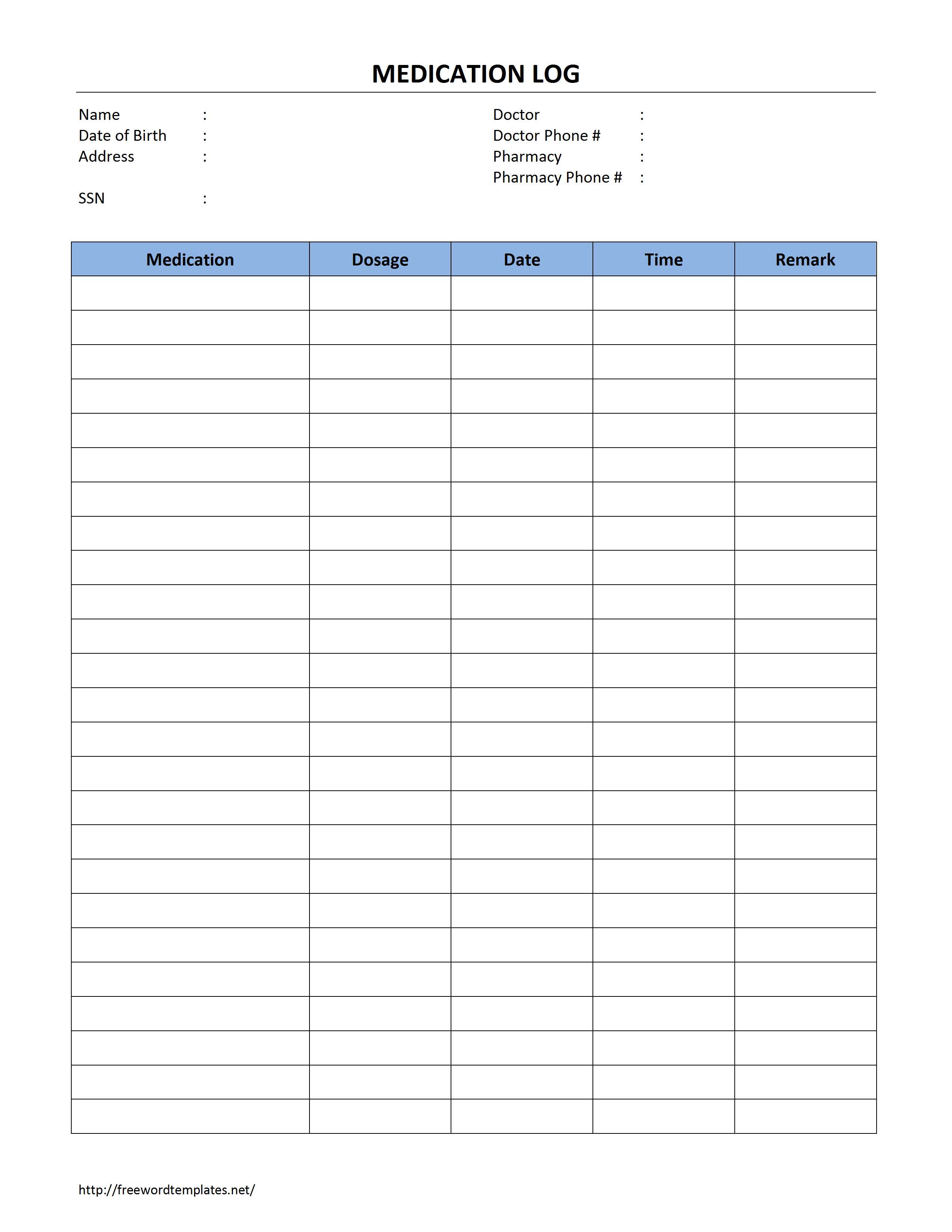As we age, it’s common to find ourselves taking more and more medications to help manage various health conditions. Keeping track of all these medications can be a challenge, but luckily there are tools available to make it easier. One such tool is a medication log, which allows you to record important information about each medication you take. Using a medication log like the one pictured below can help ensure that you don’t miss a dose, take too much of a medication, or experience any dangerous interactions between different medications. It can also help you keep track of any side effects you might be experiencing from your medications.
Medication Log
 This medication log allows you to record important information about each medication you take, including the medication name, dosage, and frequency. It also includes space to record any side effects you might be experiencing, as well as any notes about the medication.
This medication log allows you to record important information about each medication you take, including the medication name, dosage, and frequency. It also includes space to record any side effects you might be experiencing, as well as any notes about the medication.
One of the most important pieces of information to record in a medication log is the medication name. This may seem obvious, but it can be easy to forget the name of a medication, especially if you’re taking multiple medications. Writing down the name of each medication can help ensure that you’re taking the right medication at the right time. Medication Name
 Be sure to record the full name of the medication, including any generic names if applicable. You can find this information on the label of the medication, or by asking your pharmacist or healthcare provider.
Be sure to record the full name of the medication, including any generic names if applicable. You can find this information on the label of the medication, or by asking your pharmacist or healthcare provider.
In addition to the medication name, it’s important to record the dosage and frequency of each medication. This will help ensure that you’re taking the correct dose at the right time. Dosage and Frequency
 Be sure to record the exact dosage and frequency of each medication, as well as any specific instructions or warnings from your healthcare provider. This will help you avoid accidental overdoses or missed doses.
Be sure to record the exact dosage and frequency of each medication, as well as any specific instructions or warnings from your healthcare provider. This will help you avoid accidental overdoses or missed doses.
It’s also important to record any side effects you might be experiencing from your medications. This can help you and your healthcare provider identify any potential issues and make adjustments to your medication regimen if needed. Side Effects
 Record any side effects you may be experiencing from your medications, including the severity and duration of each side effect. Be sure to report any side effects to your healthcare provider, as they may be able to adjust your medication or offer suggestions for managing the side effects.
Record any side effects you may be experiencing from your medications, including the severity and duration of each side effect. Be sure to report any side effects to your healthcare provider, as they may be able to adjust your medication or offer suggestions for managing the side effects.
Finally, it’s a good idea to include any notes you might have about your medications in your medication log. This can include things like how the medication makes you feel, whether you’ve noticed any improvements in your health since starting the medication, or any concerns you might have about the medication. Notes
 Use this space to record any additional information about your medications, such as how they make you feel or any concerns you might have. It may be helpful to share this information with your healthcare provider, especially if you’re experiencing any issues or have questions about your medication regimen.
Use this space to record any additional information about your medications, such as how they make you feel or any concerns you might have. It may be helpful to share this information with your healthcare provider, especially if you’re experiencing any issues or have questions about your medication regimen.
Overall, a medication log can be a useful tool for anyone who takes medications on a regular basis. By recording important information about each medication you take, you can help ensure that you’re taking the right medications at the right time, avoid any dangerous interactions between medications, and monitor any side effects you might be experiencing. If you’re not currently using a medication log, consider giving it a try - it may just make managing your medications a little bit easier.